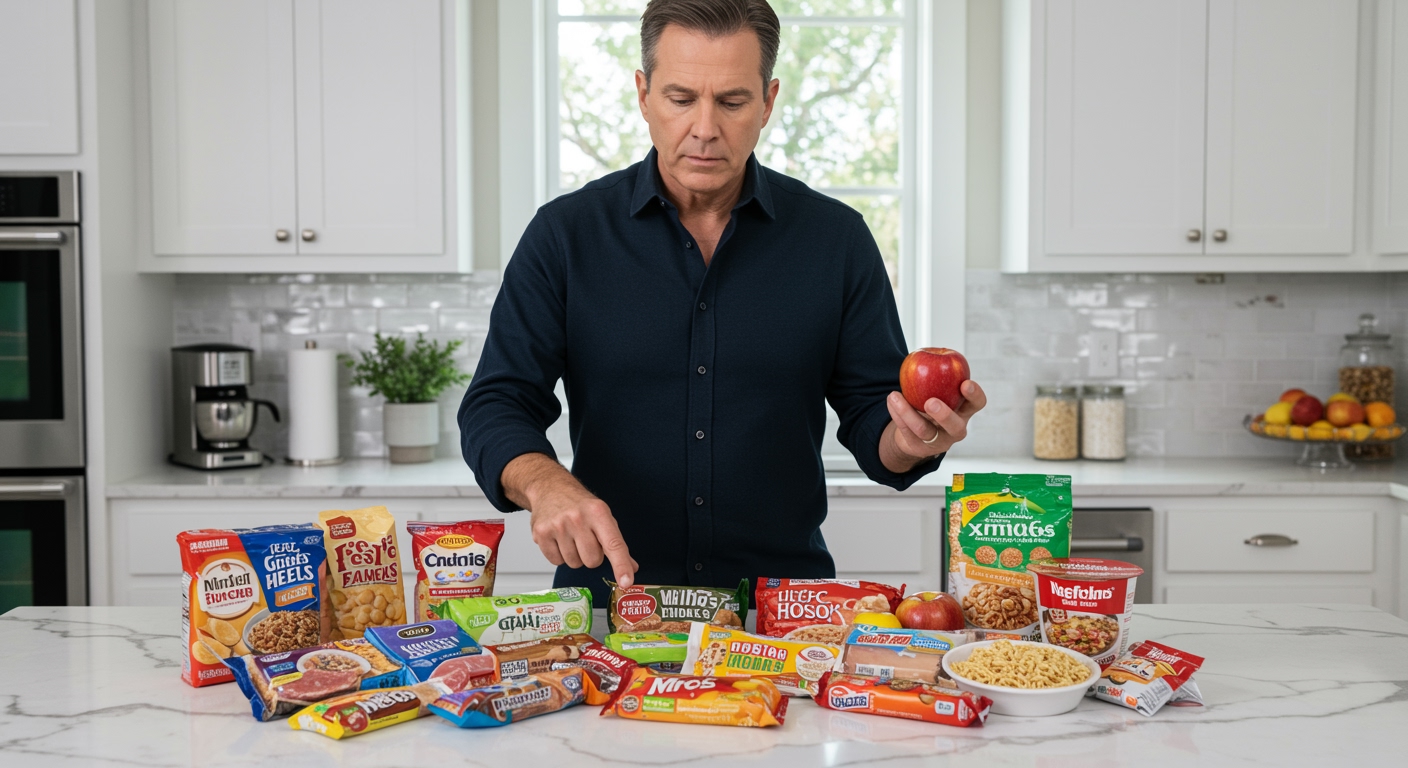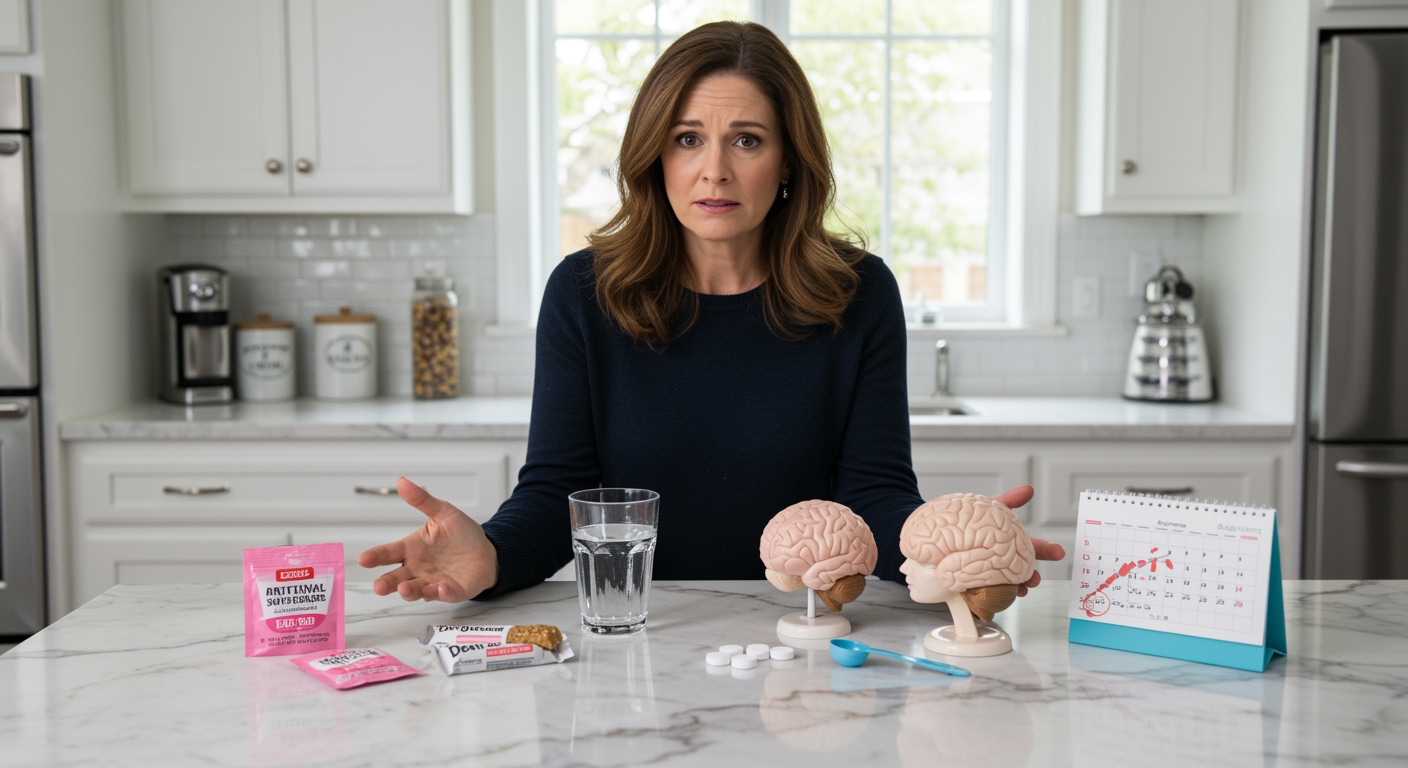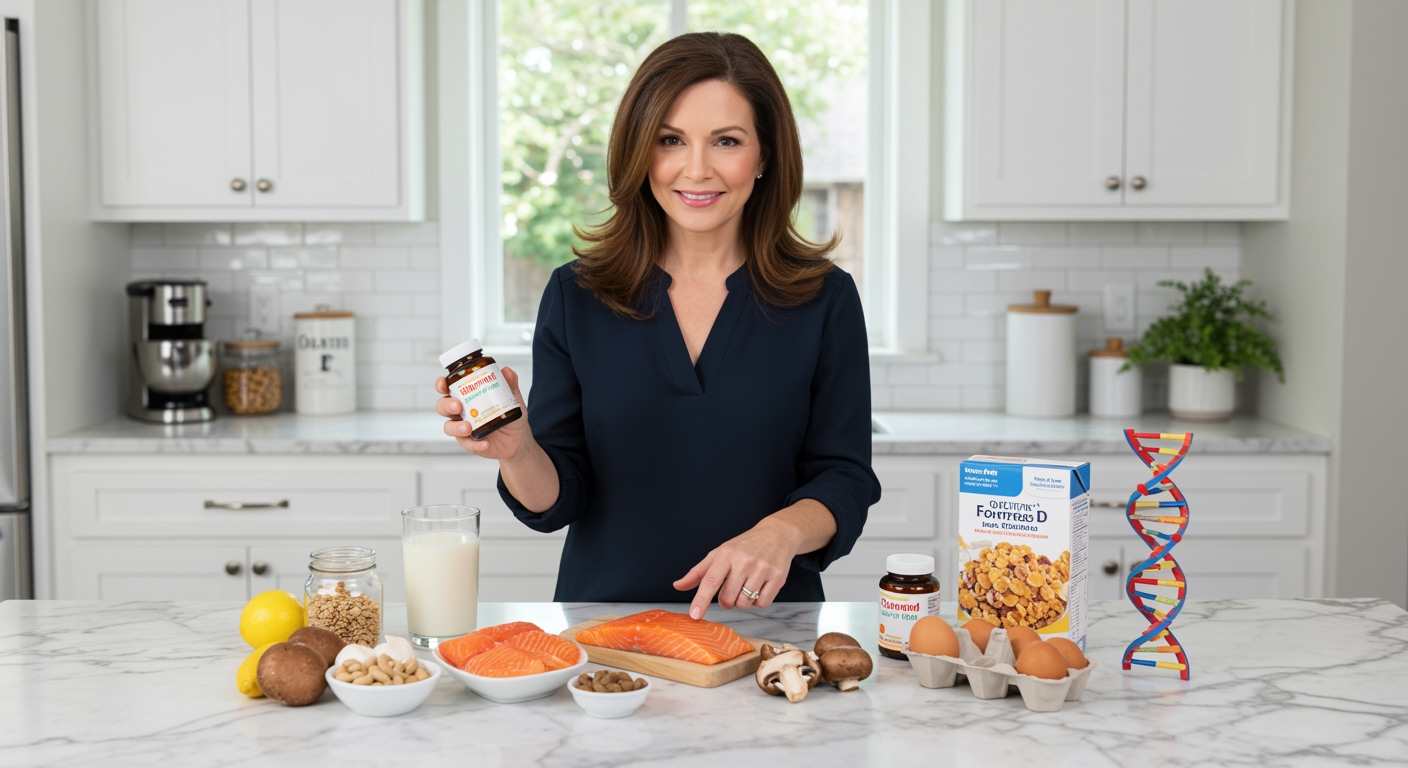✪ Key Highlight: Ultra-processed foods cause fat gain even when calories stay the same, while disrupting hormones and metabolism.
Introduction
You count every calorie, track your macros, and stick to your daily limits.
Yet you still gain fat while eating the exact same number of calories as someone who stays lean.
Hi, I’m Abdur, your nutrition coach and today I’m going to analyze groundbreaking research from the University of Copenhagen that proves ultra-processed foods cause fat gain even when calorie intake remains identical to whole food diets.
What Makes This Study Different From Previous Research?
Most nutrition studies fail to control for calorie intake properly.
This research team designed their experiment to eliminate the calorie variable completely.
They fed two groups of healthy young men the exact same number of calories for several weeks.
One group ate whole foods while the other consumed ultra-processed alternatives.
The results shocked even the researchers themselves.
Men eating ultra-processed foods gained about one kilogram more fat despite consuming identical calories.
This finding destroys the common belief that weight gain only happens when you eat too many calories.
✪ Fact: Ultra-processed foods now make up 67% of children’s daily calories in developed countries.
How Do Ultra-Processed Foods Disrupt Your Hormones?
The study revealed disturbing changes in hormone levels among men eating processed foods.
Testosterone levels dropped significantly in the ultra-processed food group.
Follicle-stimulating hormone also decreased, which directly impacts sperm production and fertility.
These hormones control far more than just reproductive health.
Testosterone helps maintain muscle mass, bone density, and healthy metabolism.
When testosterone drops, your body becomes more efficient at storing fat and less effective at building muscle.
The researchers also found higher levels of phthalates in the processed food group.
✪ Note: Phthalates are plastic chemicals that act as endocrine disruptors in your body.
Why Do Ultra-Processed Foods Cause These Problems?
Ultra-processed foods contain ingredients you would never find in a home kitchen.
These include artificial flavors, synthetic colors, chemical preservatives, and industrial emulsifiers.
Your body struggles to process these foreign substances properly.
The manufacturing process also strips away fiber and other beneficial compounds found in whole foods.
Without fiber, your digestive system processes these foods too quickly.
This rapid processing disrupts normal satiety signals that tell your brain when to stop eating.
Food companies engineer these products to maximize appeal and encourage overconsumption.
✪ Pro Tip: Check ingredient lists and avoid products with more than five ingredients you cannot pronounce.
What Other Health Risks Do These Foods Create?
The Copenhagen study adds to mounting evidence against ultra-processed foods.
Previous research links these products to higher risks of type 2 diabetes, heart disease, and early death.
A large study in The BMJ found people eating more processed foods had higher mortality rates from all causes.
Another randomized trial showed participants consumed 500 extra calories daily when eating processed foods.
These foods also increase inflammation throughout your body.
Chronic inflammation contributes to metabolic dysfunction and accelerated aging.
Children face even greater risks since their developing bodies are more vulnerable to chemical disruption.
✪ Fact: Sperm quality has declined by 50% over the past 50 years, coinciding with increased processed food consumption.
How Can You Protect Yourself From These Risks?
The solution starts with reading ingredient labels on every product you buy.
Choose foods with short ingredient lists containing only recognizable items.
Focus on whole foods like fresh vegetables, fruits, lean meats, fish, eggs, and unprocessed grains.
When buying packaged foods, look for minimal processing and no artificial additives.
Cook more meals at home using simple ingredients you can identify and pronounce.
Meal preparation on weekends can help you avoid processed convenience foods during busy weekdays.
Remember that even small changes in food choices can create significant health improvements over time.
✪ Pro Tip: Shop the perimeter of grocery stores where fresh, whole foods are typically located.
The Bottom Line
This groundbreaking research proves that calories are not created equal when it comes to body composition and health.
Your body responds differently to processed foods even when calorie intake remains identical to whole food diets.
I encourage you to share your thoughts about this research in the comments below and let me know what changes you plan to make in your food choices.
References
At NutritionCrown, we use quality and credible sources to ensure our content is accurate and trustworthy. Below are the sources referenced in creating this article:
- American Medical Association: What doctors wish patients knew about ultraprocessed foods
- University of Copenhagen: Ultra-processed foods harm men’s health
- Yale Medicine: Ultraprocessed Foods: Why They’re Bad for You
- Harvard School of Public Health: Ultra-processed foods linked to early death
- SciTechDaily: Ultra-Processed Foods Add Fat Without Extra Calories





